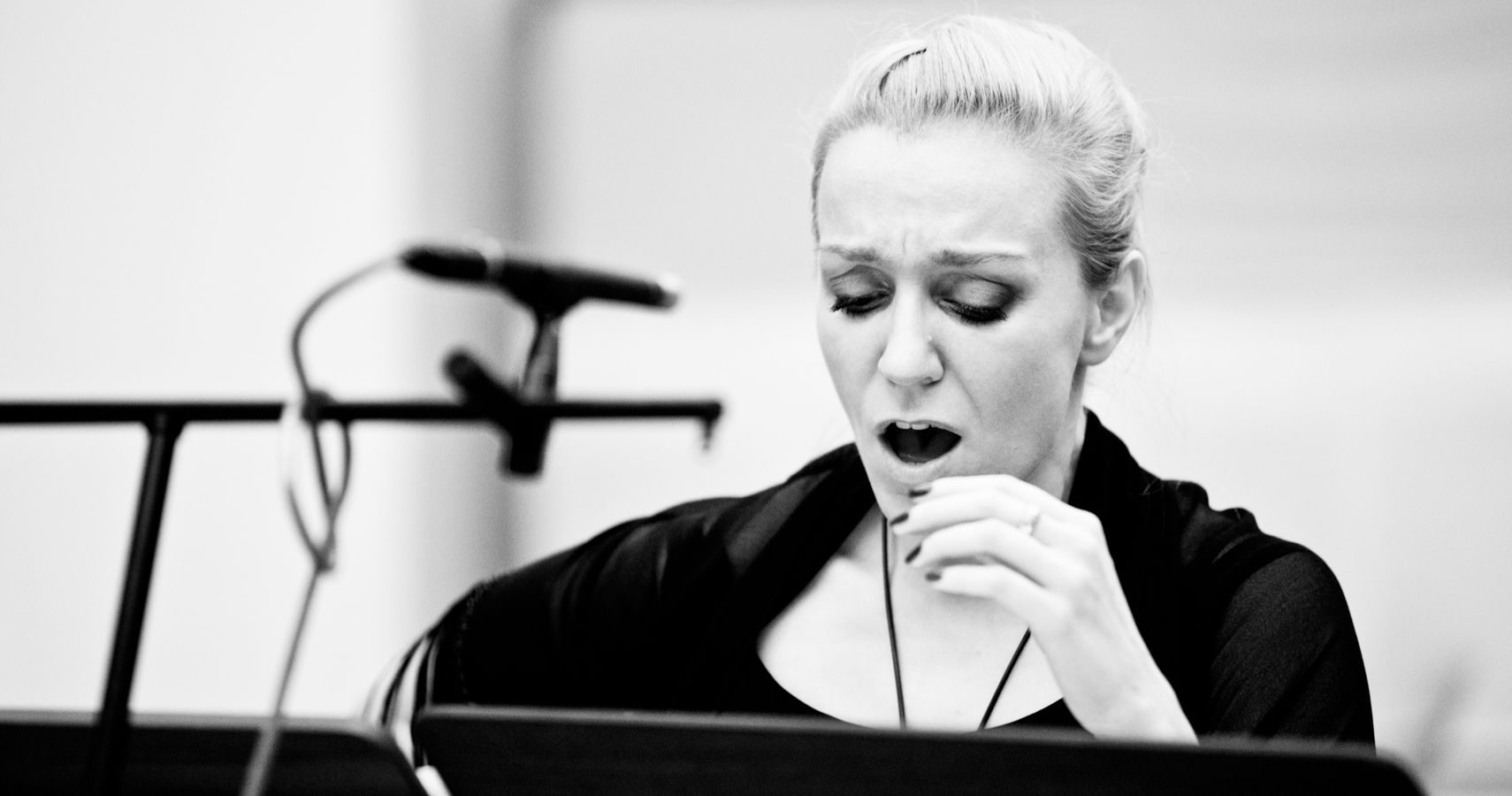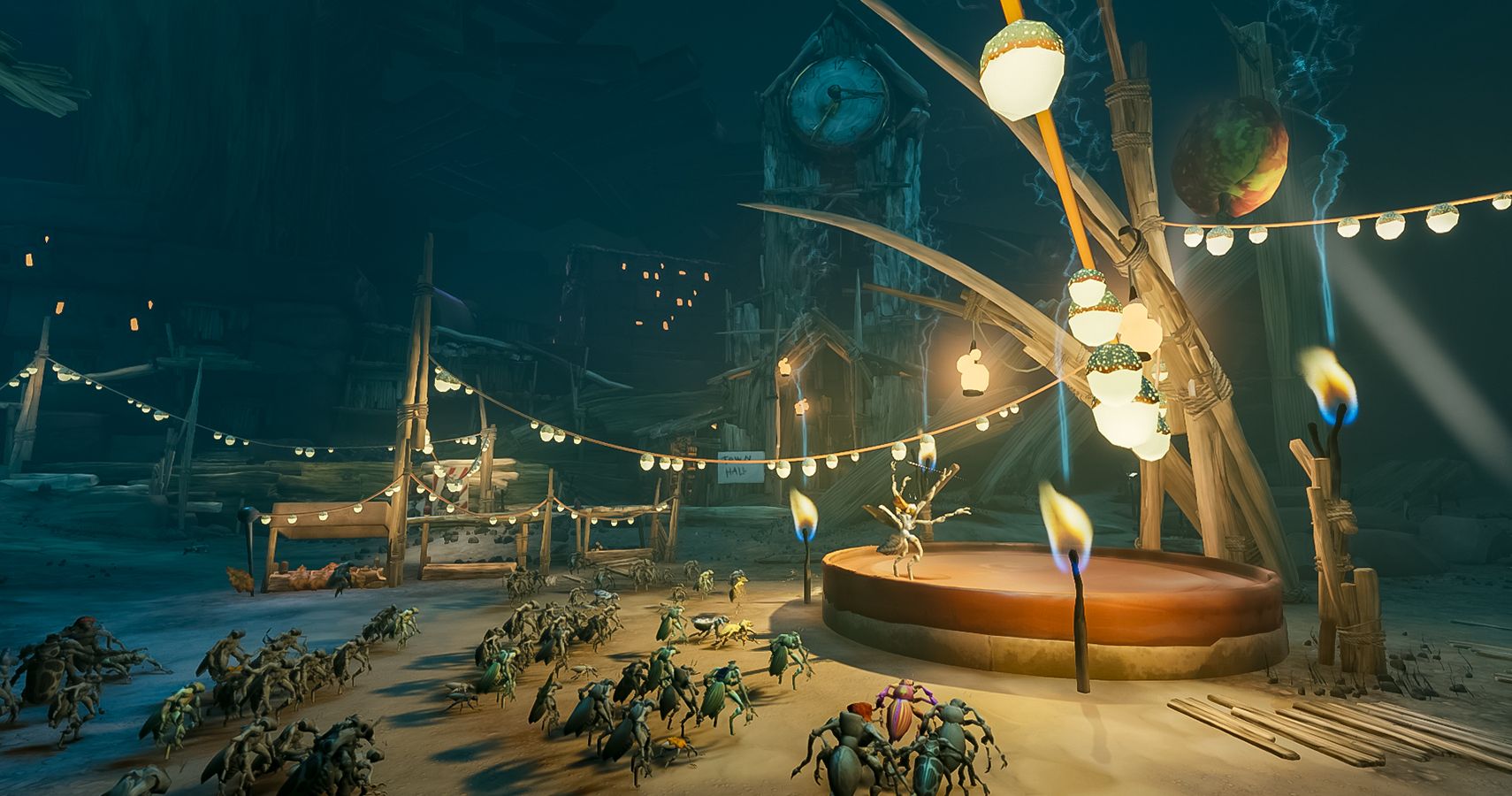"The atonal sits in our brains somewhere on the side, like an anxious dog waiting to be released." -Mikolai Stroinski
Blending originality with expressionist inspiration, composers Mikolai Stroinski and Garry Schyman were able to create an enchanting and intelligent musical score for Ovid Games' Kafka-inspired Metamorphosis. I recently had the opportunity to sit down and chat with the composer duo about their soundtrack for the game.
Regarding the decision to employ expressionist techniques in their score, the two believed it to be quite a natural choice. "The initial idea was purely intellectual, because Kafka suggests, to me, that whole expressionist period of art," Schyman said. "This Kafka game is so unique, and it just seemed to call out for this style." Within Metamorphosis' music, recurring instances of twelve-tone rows, Sprechstimme vocal technique (singing-speaking hybrid), and angular melodies can be heard throughout.
Stroinski stated that the end result came from "merging those stylistic inspirations, coupled with exchanging themes between each other." The score is very cohesive, in that despite its collaborative, experimental nature, it feels as if it's all cut from the same cloth.
The score often blurs the tonic pitch intentionally, creating reflective, atonal moments throughout. This was partly achieved through incorporation of twelve tone rows — ordered arrangements of all 12 notes of the chromatic scale — and aleatoric techniques, which involve leaving certain aspects of a composition open to chance, or the person performing's interpretation of it. Schyman elaborated that the aleatoric sections were designed to give the performers "freedom, but also to generate fairly dense, clustery, atonal effects." Metamorphosis, like Kafka's source text, is designed to make you think; in turn, the music needed to be equally as ponderous.
Still, not everything in the score is defined by its tonality. Rhythmically, there are some catchy, mechanical grooves that take place in different game environments. When I inquired about the track "The Three Procedures," Stroinski responded, "It was composed for a map that has a lot of machinery. That is why I went this way, but it also helps reflect this soulless machine of bureaucracy that's very apparent in the game."
Similarly, I asked Schyman about the groove that persists in "Underground Village." As it turns out, not everything was intended to be too dour. "I sort of wanted to have fun with that. I wanted to have a slightly humorous, very ironic kind of sound – because it really is kind of absurd. I mean, you're just going to this village and you're chatting with these insects, and I wanted to keep it light... I remember there was a note from the game developer not to get too serious, because there is an ironic lighthearted aspect to the game." Stroinski laughed and chimed in, "I don't think there's a lot of music that's atonal and also has this 'tongue-in-cheek' humor."
Aside from the condensed live orchestra, there is a single vocal soloist that can be heard in multiple tracks. "One of the cool things that the vocal brought – this Sprechstimme style has an ironic quality to it," said Schyman. "I totally hand this compliment off to Mikolai, who just did a spectacularly good job directing Joanna, the vocalist, to sing it and to add this sort of irony. It just really brought irony to the table without sounding 'ha-ha' funny. It sounded serious – it's kind of a hard thing to describe." The German lyrics themselves came from a mix of original prose from Stroinski and Kafka's actual Metamorphosis text – the source of Ovid Works' inspiration.
Accompanying the vocal soloist was a liberal use of piano, strings, and vibraphone – a tip of the hat to American film composer Bernard Herrmann. Stroinski said, "I was very much inspired by the works of Bernard Herrmann and the instrumentation you can find in film noir, or in movies from the 60s." The score's overall palette is tastefully limited, with reserved use of harp, bassoon, clarinet, flute, muted brass, and light percussion sprinkled in. "Interestingly enough, we never discussed vibraphone, but I used it extensively as well," Schyman added. "I think we just serendipitously both found that to be a really good sound for our score."
As a means of wrapping things up, Schyman praised the composing experience as one that felt organic and natural. "It was one of the most effortless scores I've ever composed." Stroinski wholeheartedly agreed, clarifying, "not in terms in simplicity, but how pleasant the experience was."
Really, the pair is worthy of praise for their music in Metamorphosis. From my knowledge, this is the first dedicated video game score that is based in musical expressionism. The composer duo pioneered something special, and criminally underappreciated. Recalling the very beginning of the project, Schyman told me, "My initial thought was, 'this is a chance to do something [different] – will it work?'"
It absolutely does.




